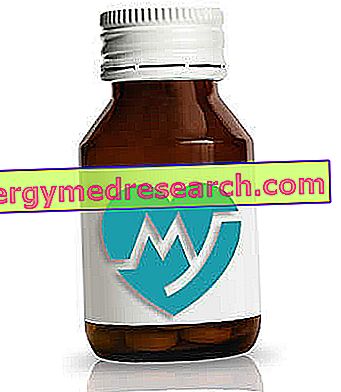
Scientific name
Plantago lanceolata, Plantago major
Family
Plantaginaceae
Origin
Europe, northern and central Asia
Synonyms
Greater plantain
Used Parts
Drug given by dried leaves
Chemical constituents
- mucilage;
- Glycosidic phenylpropanoids (verbascoside);
- Iridoid glucosides (aucubine and catalpol);
- Tannins;
- cumarine;
- Flavonoids;
- Salicylic acid.
Plantain in Herbal Medicine: Plantain Properties
The plantain is mainly used in the sedative - anticatarral treatment of inflammation of the respiratory tract (thanks to the presence of mucilages). In addition to being used internally, in the form of a poultice, plantain leaves are used against insect bites or skin irritations (emollient action).
Biological activity
Different properties are attributed to the plantain, among which the anti-inflammatory properties (especially those at the level of the respiratory system), antibacterial, antitussive and expectorant.
These activities have been confirmed by several studies conducted on the subject, so much so that the use of the plant has obtained official approval for the treatment of colds, respiratory tract diseases and skin and mucous membrane inflammations.
The chemical constituents responsible for the antibacterial action are aucubigenin (a product of hydrolysis of the aucubin) and some types of saponins with antimicrobial activity.
Aucubine and baicalein (a flavone) have been shown to exert anti-inflammatory action, at the level of the respiratory tract, traditionally attributed to the plant. This action appears to be carried out by inhibiting the synthesis of reactive oxygen species (ROS) by respiratory tract neutrophils.
Moreover, some in vitro research has shown that plantain extracts are also able to inhibit the synthesis of cyclooxygenase types 1 and 2 (COX-1 and COX-2) and to reduce the production of nitric oxide (NO ).
Plantain against diseases of the respiratory tract
Thanks to the anti-inflammatory, antibacterial, antitussive and expectorant action of the plantain it is used, its use has been officially approved for the treatment of colds and airway diseases, such as coughs and bronchitis.
Plantain is particularly useful in the treatment of the aforementioned disorders, also thanks to the mucilages contained in it, which exert a protective action at the level of the respiratory mucosa.
In these cases, the plantain must be used internally. The dose that is usually recommended to take is about 3-6 grams of drug per day.
Plantain against inflammation of the oropharyngeal cavity and skin
Thanks to the anti-inflammatory properties conferred by baicaleina and aucubina and to the emollient properties conferred by the mucilage contained in it, the plantain can be used as an external remedy in case of skin inflammation and inflammation of the mucous membranes of the oropharyngeal cavity.
For the treatment of these disorders, decoctions can be prepared for external use using about 2-4 grams of drug. The decoction thus obtained can be applied directly to the area of the skin to be treated, or it can be used for rinsing and gargling.
Alternatively, fresh leaves can be used for preparing poultices to be applied directly to the area of skin affected by inflammation.
Plantain in folk medicine and in homeopathy
In folk medicine, plantain juice is used as an internal remedy for respiratory tract infections, liver disorders, stomach cramps, diarrhea and cystitis; as well as being used as a diuretic remedy.
Externally, however, folk medicine uses the plant for the treatment of wounds, boils and conjunctivitis, as well as using it as a hemostatic remedy.
The plantain is also used in the homeopathic field, where it can be found in the form of granules, mother tincture and ointment.
Homeopathic medicine uses this plant in case of rashes, eczema, itching, hives, psoriasis, pyorrhea, toothache, bleeding gums and nocturnal enuresis.
The dose of homeopathic remedy to be taken can vary from one individual to another, also depending on the type of disorder that needs to be treated and depending on the type of preparation and homeopathic dilution that is intended to be used.
Contraindications
Avoid taking or using hypersensitivity to one or more components to avoid possible cross-allergies with other Plantaginaceae (psyllium).
Pharmacological Interactions
- laxatives;
- hypotensive.



